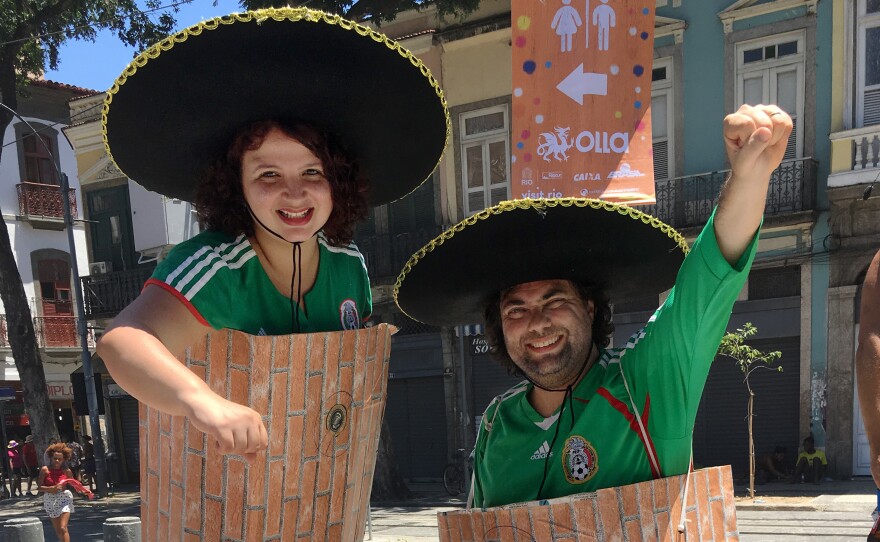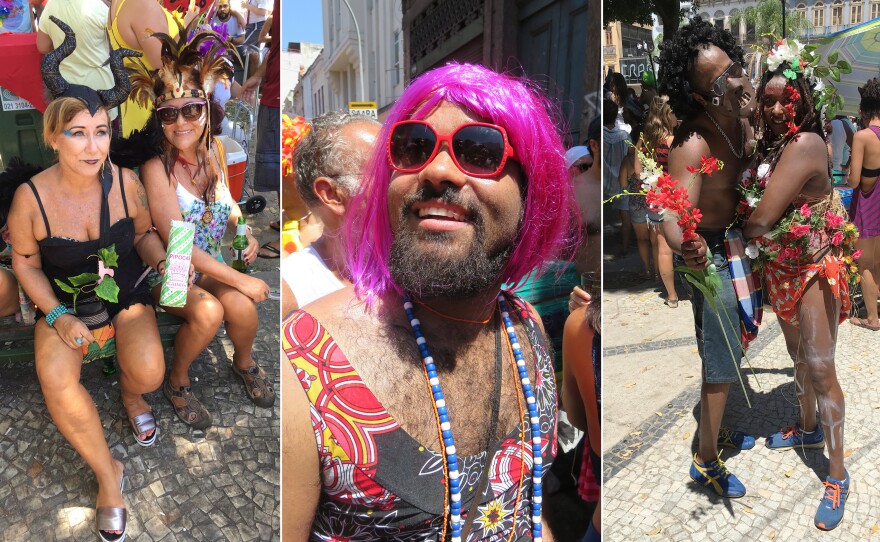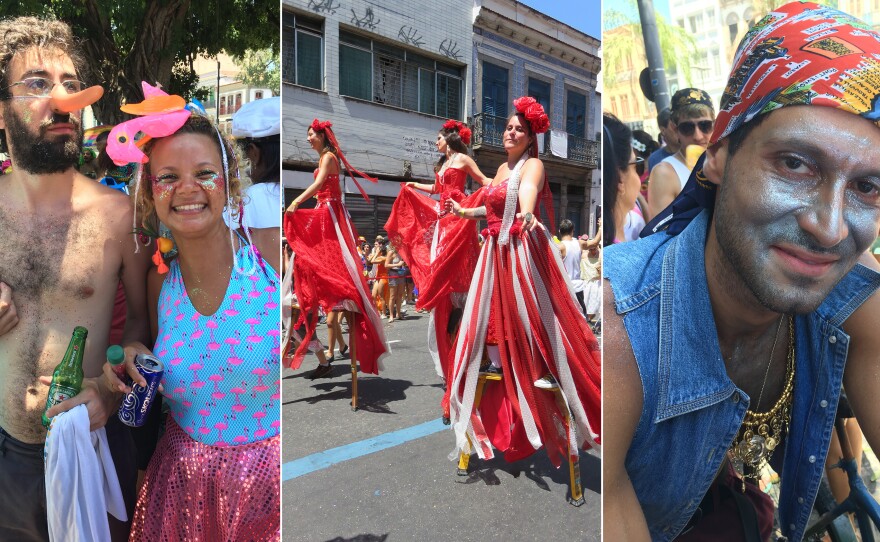


Rio de Janeiro's carnival is like one of those lavish parties where all the guests show up early and start guzzling away while you're still upstairs, trimming your eyebrows.
Is there another city on earth that tosses aside its troubles with such gusto, and then dives into the dressing-up box with all the wild-eyed relish of The Cat in the Hat?
The carnival hasn't even officially opened, but this weekend several hundred thousand people were already out parading and partying beneath a steaming tropical sun.
Many cats in many hats appeared on the streets, against a skyline so weirdly wobbly that it could have come from the pen of Dr. Theodor Seuss Geisel himself.
Beneath garlands, glitter and grins, they twirled away the weekend as if Monday would never come and the ice-cold Brazilian beer — served from brightly-decorated trucks or grubby cold-boxes on bicycles — would never stop flowing.
Amid this euphoria, there is an echo of reality. Political satire and protest is sewn into the multicolored fabric of Rio's annual carnival season. To see that, you only have to look at some of the costumes.
Former commodities tycoon Eike Batista, once Brazil's richest man, was recently locked up in prison awaiting trial for bribery. Yet I saw him lining up for the porta-potties behind Napoleon, two Roman emperors and a squirrel carrying a trombone.
Word has it that in Rio this year there are many sightings of Donald Trump. I didn't personally see the U.S. president's peroxide-blond locks bobbing above the dancing crowds, but I met his Mexican Wall — rendered, in symbolic protest, as cardboard boxes around the waists of Brazilian journalists Fernando and Luciana Miragaya.
As a newcomer watching this craziness for the first time, you might find yourself asking — how all do these people do it, in this insane heat? How do so many manage to party so joyously in temperatures so sweltering that you can lose a gallon of sweat in an hour?
Serious carnival performers — the ones you see in 7-inch heels and glorious costumes on TV — say they prepare with strict diets, intensive training and by glugging down plenty of water beforehand.
Law student Ana Carolina Carvalho is preparing to perform in the official samba parade as a giant, silver, feathered mermaid. That's why she's been working out for two hours a day, five days a week, at the Bodytech Fitness Center close to Copacabana beach.
Carvalho thinks this will pay off, once the fun starts.
"When you listen to the music, and your body starts shaking, and then you forget everything, and everything is good, and everything is alright, and excellent" she says.
Fatima Carvalho, 55, has danced every year for 27 years with the Portela samba school in north Rio. She says she prepares by soaking her feet in rock salt, drinking water and eating fruit.
That's no insurance against trouble when several million people are on the loose.
She hasn't forgotten the occasion, some years back, when she was hit in the head by a flying beer can. It knocked her out cold. Yet it did not dent her enthusiasm.
"I don't like parties, or birthdays, or Christmas. But I adore my carnival," says Fatima.
Which prompts my second big question. Why?
I mean — seriously — why does a country, bedevilled by recession, corruption, red tape, gangs, drugs and guns — want to enjoy itself with such flamboyant abandon instead of wallowing in self-pity like the rest of us?
Rio's carnival doesn't officially open until the end of the coming week, when the city's fabulous samba schools will compete against each other for several days in what's billed as the "world's greatest spectacle."
When this party really starts, I intend to get an answer.
Copyright 2017 NPR. To see more, visit http://www.npr.org/.






